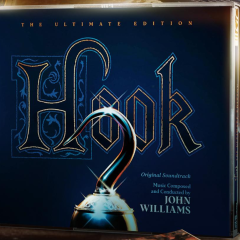What section of The Fellowship of the Ring is your favorite, musically?
What section of The Fellowship of the Ring is your favorite, musically?
41 members have voted
-
1. What section of The Fellowship of the Ring is your favorite, musically?
-
The opening in Hobbiton
-
The journey from Hobbiton to Bree & Gandalf's encounter with Saruman
-
Bree & the journey from there to Rivendell0
-
Rivendell
-
The journey from Rivendell to the Mines
-
The Mines of Moria
-
Lothlorien
-
The journey down River Anduin and Frodo's encounter with Boromir and Aragorn
-
The Parth Galen battle and the Finale
-


Recommended Posts
Create an account or sign in to comment
You need to be a member in order to leave a comment
Create an account
Sign up for a new account in our community. It's easy!
Register a new accountSign in
Already have an account? Sign in here.
Sign In Now